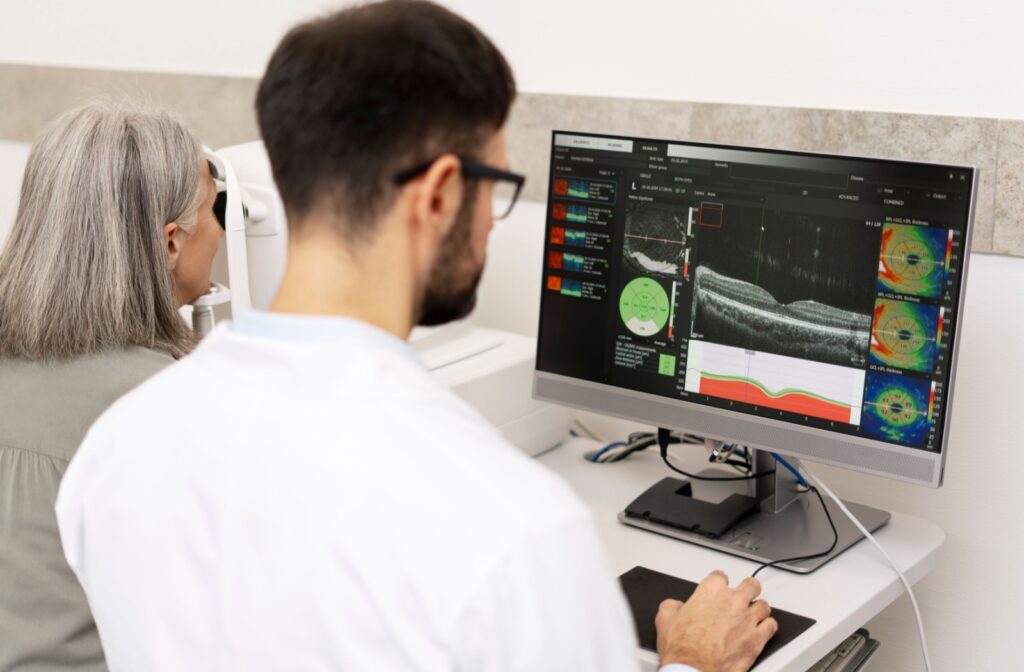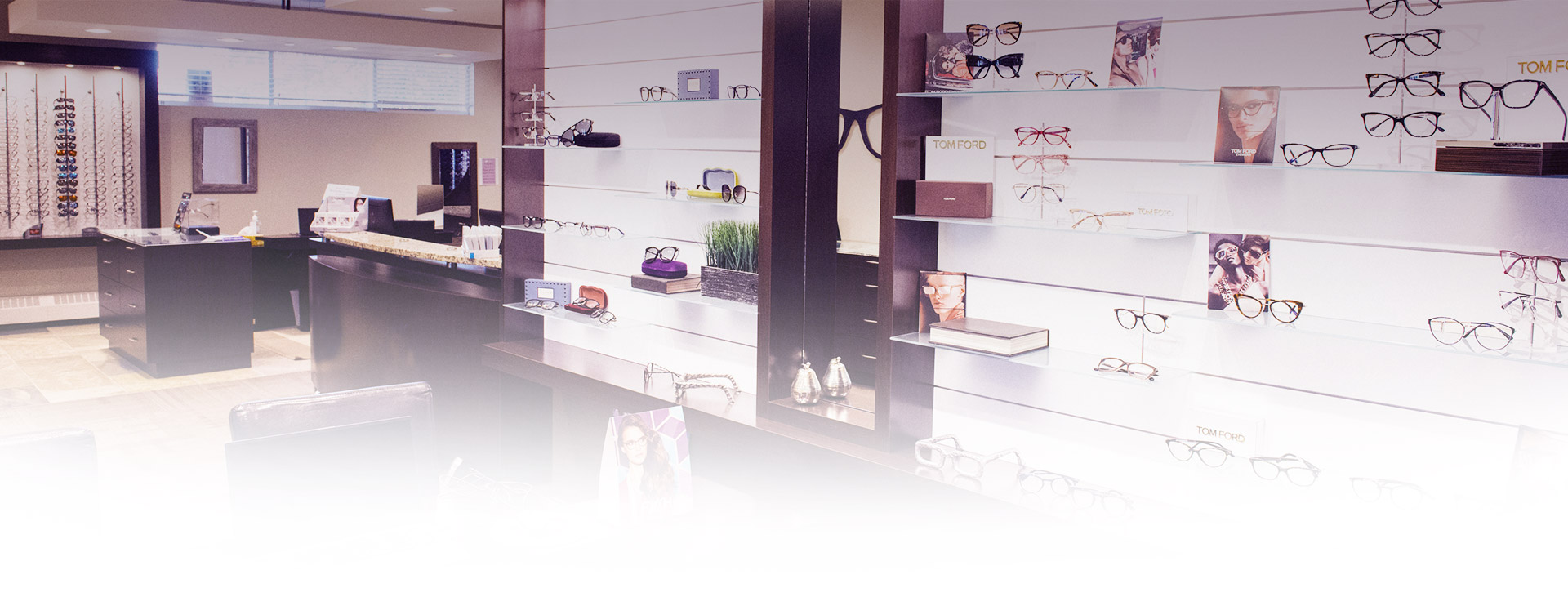When a family member mentions that they have a health condition, it’s normal to be concerned for their health—and sometimes also for your own. Diabetes and heart disease, for instance, are health conditions that have a genetic component, and certain eye conditions, such as glaucoma and macular degeneration, do so as well.
Among the risk factors for glaucoma, a family history of this condition is one of them. In fact, research suggests that if you have a parent or sibling with glaucoma, your risk of developing it significantly increases.
That said, other factors also play a role, and while you cannot entirely prevent glaucoma, there are proactive measures you can take to lower your risk.
Glaucoma & The Role of Genetics
Glaucoma isn’t just one condition–it’s a group of eye diseases that damage the optic nerve, often because of high eye pressure. It presents silently, often without noticeable signs, until the damage continues, leading to irreversible vision loss over time.
Anyone can develop glaucoma, but genetics can increase the likelihood.
How Genetics Impact Glaucoma Risk
Research has found that glaucoma can run in families.
Studies estimate that first-degree relatives of someone with glaucoma are over 13 times more at risk for developing this condition. On top of that, certain genes contribute to this heightened risk, particularly for forms such as primary open-angle glaucoma and congenital glaucoma.
For instance, mutations in the MYOC gene (for myocilin) have been linked to a higher risk of early-onset glaucoma. However, it’s rarely a single gene but rather a combination of genetic and environmental factors that contribute to glaucoma’s development.
Not everyone has the privilege of learning their family’s health history, but if you can, this information is beneficial. Speak with your relatives and ask about their eye health and history.
Sharing this information with your eye doctor helps them tailor glaucoma (or eye disease) screens to fit your visual needs.
The Family Link Doesn’t Guarantee Glaucoma
While having a family history of glaucoma can increase your risk, it doesn’t mean you’re destined to develop it. Think of your genetic predisposition as a push in a certain direction, not as a guarantee. We are more than our genetics. We’re also a product of our environment.
We cannot control our genetics, but we do have some control over our environment. This includes lifestyle habits and personal care, all of which also contribute to the risk of developing glaucoma. That’s why some family members might experience glaucoma, while others remain unaffected, even with similar genetic markers.
For example, having abnormally high intraocular pressure (IOP) is a key indicator of glaucoma development, but not everyone with high IOP develops glaucoma. Regular check-ups and early diagnostics can bridge this gap, letting you stay ahead of potential complications.
Other Risk Factors for Glaucoma
Your family history isn’t the only contributor to glaucoma risk. Several other factors can increase the odds, too. Here’s what else to keep an eye on:
- Age: Glaucoma becomes more common as we age, particularly after age 60.
- Ethnicity: Research has shown that certain groups, like those of African, Hispanic, or Asian descent, are at a higher risk for specific types of glaucoma.
- Medical History: Conditions such as diabetes, high blood pressure, and heart disease can elevate your risk of glaucoma.
- Eye Injuries or Surgery: A history of trauma to the eye or certain surgical procedures can make people more vulnerable.
- Corticosteroid Use: Prolonged use of corticosteroid medications for other health conditions can increase the risk of developing secondary glaucoma.

Protect Your Eyes Against Glaucoma
Glaucoma is a complex eye disease, and while it cannot be entirely prevented, there are ways to lower your risk and catch it early for effective management. Here’s how:
Routine Eye Exams
The most proactive step you can take is to schedule regular, comprehensive eye exams.
With modern tools and screenings, we can detect changes in your vision and eye pressure long before symptoms appear. This is critically important, as glaucoma can develop silently and may progress without noticeable symptoms.
While most adults can get by with eye exams every two years, we may recommend annual exams and screenings if you’re at risk for developing glaucoma.
After all, early detection is key to preserving your vision.
Protect Your Eyes
Eye injuries are a risk factor for glaucoma.
Just as you wear a helmet to protect your head, shield your eyes from harmful irritants and debris. Wear safety goggles if you work in a hazardous environment, and wear sports eyewear when you’re engaged in high-impact activities.
Maintain a Healthy Lifestyle
Nourish your body from the inside out. Eating a colourful diet of whole foods rich in vitamins A, C, and E, Omega-3s, and antioxidants can support eye health.
Regular exercise and avoiding smoking, junk food, and excessive alcohol consumption all contribute to healthier eyes. These simple changes can make a significant difference over time.
Safeguard Your Sight
Recognizing the role that genetics and lifestyle factors play when it comes to glaucoma can help you take charge of your health.
While having a family history of glaucoma may be a risk factor, it isn’t a definite predictor of your future. With regular check-ups, a healthy lifestyle, and early detection, you can enjoy clear vision for years to come. If it’s been a while since your last eye exam or if glaucoma runs in your family, remove the guesswork. Book an appointment with Visionary Eye Centre to stay on top of your eye health and gain peace of mind. Your future self will thank you!



